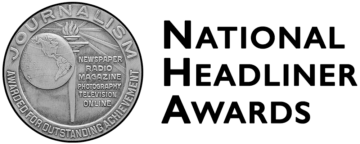How can the vote in the U.S. presidential election be protected against foreign interference? Policy makers, experts and analysts convened to consider this issue at a September symposium cosponsored by Penn Law’s Center for Ethics and the Rule of Law (CERL) and the Annenberg Public Policy Center (APPC), in partnership with the Center for a New American Security (CNAS).
The symposium, “Protecting Democracy: Foreign Interference, Voter Confidence, and Defensive Strategies in the 2020 Elections and Beyond,” featured two public keynote panels examining how government officials, private sector leaders, and members of the press can best prepare for the likelihood of foreign interference in 2020’s political cycle, especially in light of the 2016 election. The virtual event was held September 17, 2020.
[Read the conference report here.]
In the first panel, Patterns of Foreign Election Interference Since 2016, Claire Finkelstein, the Faculty Director of CERL and professor at the University of Pennsylvania Carey Law School, moderated a discussion with APPC Director Kathleen Hall Jamieson and James Clapper, the former U.S. Director of National Intelligence and a CERL Board Member.
Speaking about the 2016 election, Jamieson said Russian trolls did not have a large enough online reach to sway the election solely through misleading social media posts that sought to amplify social divisions and mobilize and demobilize different segments of voters. But, she said, Russian-hacked content released through WikiLeaks had a strong effect on media coverage of the race between Hillary Clinton and Donald Trump.
“Their hacked, released content was demonstrably effective and that’s where we can document a clear effect on the American electoral system because they changed the media agenda discernibly across time,” said Jamieson, author of the 2018 award-winning book “Cyberwar: How Russian Hackers and Trolls Helped Elect a President.” The book was updated and released in a new edition by Oxford University Press in June 2020.
Jamieson asked Clapper about the October 7, 2016, intelligence announcement that Russia was behind the theft and leaks of email from the Democratic National Committee (DNC) – an announcement that would, within hours, be overshadowed first by reporting on the “Access Hollywood” tapes and then by WikiLeaks’ release of Clinton campaign chairman John Podesta’s hacked emails.
“On October 7th, did the intelligence community mean to convey that the Russians were behind the hacking of the DNC only and not behind the Podesta hacking?” Jamieson asked.
“It was only focused on the earlier hack,” meaning the DNC, Clapper said.
Jamieson then noted that “if the press could not know that the Podesta content was Russian-hacked,” that lack of knowledge could explain why the press failed to attribute the Podesta email to the Russians in the following days.
Jamieson emphasized that the question today of how “the press [would] treat hacked content” was as important as how social media sites should handle misleading content. She also suggested that experts in the private and public sector should partner with local news stations to open disinformation hot lines akin to consumer help lines, particularly to dispel misinformation intended to suppress physical voting on Election Day.
Clapper mentioned two areas of concern from a public sector perspective: maintaining cyber/physical security for sensitive information and promoting the public’s cognitive security, preparing people to be wary of misinformation on the internet. Regarding the latter, Clapper worried that “we’ve [the government] done very little.”
In a second public session, Carrie Cordero, a senior fellow and the general counsel at CNAS, moderated a discussion about voter attitudes and foreign interference among Scott Bates, Deputy Secretary of State, Connecticut.; Vanita Gupta, President and CEO, the Leadership Conference on Civil and Human Rights; Bill Kristol, Director, Defending Democracy Together, and Editor-at-Large, the Bulwark; and Laura Rosenberger, Director, Alliance for Securing Democracy, German Marshall Fund, and a former member of APPC’s Transatlantic Working Group, which sought to reduce online extremism and deception.
The symposium was part of a CERL, APPC, and CNAS project exploring “foreign interference in elections, election security, and fostering confidence in the U.S. elections.”
Read the conference report here.


